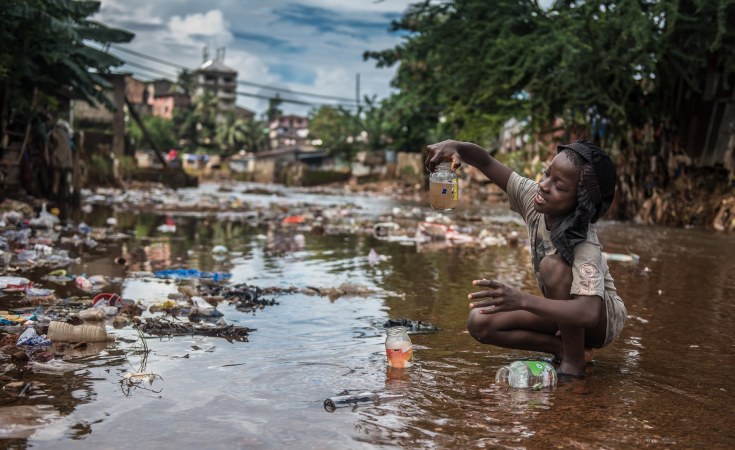Johannesburg — Eighteen countries are reporting cholera outbreaks, and 10 of those are in Africa. According to the World Health Organisation (WHO), more than 26 000 cases and 660 deaths were reported as of January 29, 2023, and the average case fatality ratio far exceeds the acceptable level of below 1%. It is currently almost at 3%.
"From 2021 we had a number of outbreaks within the region and countries were able to respond and swiftly contain them. In 2022 we had fewer countries affected and overall case numbers were lower. In 2023 we have seen a significant increase in the number of cases in the first month of 2023, 26 000 cases were reported which is 30% of the total number of cases that were seen last year in 2022.
"We are concerned that if this trend that we have seen in January continues, we will far exceed the number of cases that we have seen in 2022 and ... put significant strain on the health systems in the countries that are affected but also significant demand on the medical counter majors that we need to respond to this," said Patrick Otim Ramadan, WHO Africa's Incident Manager for Regional Cholera Response.
Malawi is the most affected African country with more than 1,200 people dead and over 40 000 cases reported from all 29 districts since March 2022. The outbreak started in the Machinga district after tropical storm Ana hit a few Southern African countries in January 2022, followed by Cyclone Gombe in March 2022. Damage by the cyclones caused floods, leading to the displacement of communities, and lack of access to safe water, sanitation, and hygiene - leaving the Southern African country facing its worst cholera outbreak in two decades.
The country's Secretary for Health Charles Mwansambo said Malawi is recording around 500 cases a day.
"We have noted that there are a number of activities that we need to do to stop the spread of cholera. Currently, we are strengthening our communication and community engagement by involving political, religious, and community leaders. We intend to simultaneously implement minimum control interventions in all the districts. We have just revised the cost response based on the recent figures; it is now costing around U.S.$59 million. We have so far managed to get U.S.$18.6 million which leaves us with a gap of about U.S.$40 million. We are calling on all partners in the country and outside to support our efforts in ending this outbreak," said Mwansambo.
Climate change and some humanitarian crises are cited as contributing to the outbreaks that Somalia, Kenya, Mozambique, Zambia, Cameroon, Nigeria, the Democratic Republic of Congo, Burundi, Ethiopia, and Malawi are seeing right now.
"We are witnessing a worrying scenario where conflict and extreme climatic events are worsening the triggers of cholera and increasing its toll on lives. It's critical for African countries to scale up readiness to quickly detect cases and mount a comprehensive and timely responses. We are supporting governments to bolster key control measures to halt these outbreaks as quickly as possible," said Matshidiso Moeti, WHO Regional Director for Africa.
WHO deployed 65 experts to five African countries, most of them bound for Malawi. "The droughts in the greater Horn of Africa are affecting Ethiopia, Somalia, and Kenya. In Kenya, we have the cholera outbreak in one of the drought-affected areas of Garisa, and in Somalia, the outbreak is in drought-affected areas. The drought significantly affects the availability of safe drinking water for people in those areas," Ramadan said.
In addition, WHO disbursed U.S.$ 6 million to kick-start the emergency cholera responses in Kenya, Malawi, and Mozambique.
Another factor to take into account is the cross-border transmission between Somalia and Kenya, said Ramadan. WHO encourages countries to work on cross-border collaborations, and joint surveillance interventions so that those outbreaks can be contained, he said.
"The solution requires a multi-sectoral response, and the solution is providing safe clean water. Community members need to visit their health facility early so they can start treatment as soon as possible to prevent fatalities," Ramadan said.
According to WHO, the increase in global cholera outbreaks is putting a strain on the available doses of the oral cholera vaccine routinely used to interrupt transmission in places without safe drinking water.
One such area is the Democratic Republic of Congo, where fighting between the country's army and the armed groups resumed, leading to almost half a million people in North Kivu fleeing their villages. Since then the region has seen an increase in cholera cases. During the clashes, people have had to flee their homes and be without sufficient food, water, and access to sanitation facilities which are critical to prevent the further spread of cholera.
In response to the current outbreak, Save the Children, an organisation active in the DR Congo since 1994 is stepping up its health and hygiene promotion activities by providing water and sanitation inputs, and essential drugs to health facilities in Nyirangongo - hosting the largest number of displaced people. Four of five cholera cases in the region are children.
About 3.3 million cholera vaccine doses were delivered to the DR Congo, Kenya, and Mozambique through the International Coordinating Group on Vaccine Provision since the beginning of 2023. This initiative aims to manage emergency supplies of vaccines and is a partnership of the International Federation of the Red Cross and Red Crescent Societies, Médecins sans Frontières United Nations Children's Fund, and WHO.
The focus is on effective surveillance, rapid response, and immediate containment before the disease spreads.
AllAfrica's reporting on peacebuilding in Africa is supported by the Carnegie Corporation of New York.


